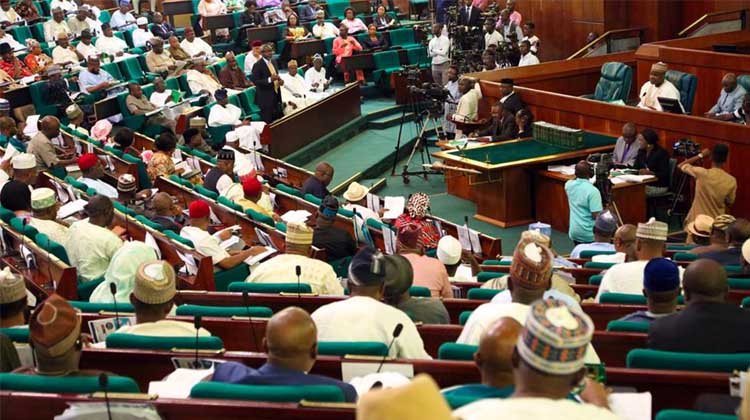
The House of Representatives, on Tuesday, considered and adopted the report by its Committee on Customs and Excise on a bill to repeal the Customs and Excise Management Act 1958.
The legislation is titled, ‘Bill for an Act to Repeal the Customs and Excise Management Act, Cap.C45, Laws of the Federation of Nigeria, 2004 and Enact the Nigeria Customs Service Bill.’
Part of the amendments to the CEMA is the restriction of controller-general appointment to the serving officers of the Nigeria Customs Service.
If the President, Major General Muhammadu Buhari (retd.), signs the reviewed CEMA into law, the current Controller-General of the NCS, Hammed Ali, a retired Colonel of the Nigerian Army he appointed to head the Service, will be the last non-Customs officer to occupy the office.
Chairman of the committee, Leke Abejide, in his presentation to the Committee of the Whole, noted that the old Act had “become obsolete in today’s competitive global world and also, in effective operations of the NCS.”
Abejide also noted that the review of the Act sought to reposition the NCS for improved efficiency and service delivery.
According to him, full automation of the Customs with modern reality will facilitate trade, improve revenue generation and more importantly, expose illegal importation of arms and ammunition into the country.
The lawmaker listed some initiatives in the bill to include collation of all Customs and Excise legislations into a single compendium to be known as the Customs & Excise Act, to facilitate easy reference and easy knowledge driven Customs and Excise policies.
He said, “This bill, when it becomes an Act, will position Nigeria Customs Service to be financially stable and this will enable the NCS to recruit the required number of officers they need to man our porous border stations. The Nigeria Customs Service currently has 15,349 officers instead of 30,000 officers needed for the Service to function optimally.
“The current 7 per cent cost of collection from the duties payment is not enough to pay salaries of officers, not to talk of improving the infrastructures. For this reason, this bill provides for a funding system based on 4 per cent FOB (Free on Board), according to international best practice, to address funding problems and to reposition the Service for improved efficiency and service delivery.
“As such, the 7 per cent cost of collection shall cease to exist the moment this bill becomes law.”
Abejide further noted that the Act would be more readable to the understanding of the principal stakeholders, thereby deviating from hitherto strict legal drafting of the aged.
Copyright PUNCH.
All rights reserved. This material, and other digital content on this website, may not be reproduced, published, broadcast, rewritten or redistributed in whole or in part without prior express written permission from PUNCH.
Contact: [email protected]














